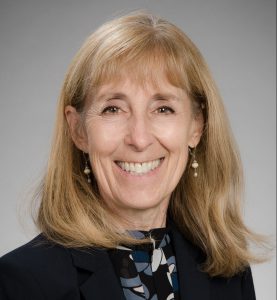WE ARE STRENGTHENING OUR COMMUNITY
The UW community has deep local roots that go back decades and generations — and a broad reach, extending around the world: students, alumni, faculty, staff, patients, families, friends, collaborators, organizations and enterprises who are both served by and have built a University dedicated to the greater good.
CLIMBING THE HILL

It’s a beautiful day in July, and Anne Hirsch, Ph.D., ARNP ’79, is multi-tasking: She’s walking her dog while discussing the Rural Nursing Health Initiative. Despite her enthusiasm for the program, she has to stop for a moment to catch her breath. “We’re going up a steep hill,” Hirsch says.
After a moment, Hirsch continues, explaining that the UW School of Nursing’s new initiative — funded with a $4.7 million, four-year grant from Premera Blue Cross — will improve rural health in Washington state.
“We know that health care delivery and access to care can be a real issue in rural and remote communities,” says Kitti Cramer, B.S. ’94, J.D. ’98, MHA ’02, Premera’s executive vice president and chief legal and risk officer.
Cramer and her colleagues have done their research on the topic. The company spent several months meeting with more than 80 organizations in Washington and Alaska to investigate rural health issues. It became clear to Premera that a shortage of nurses was affecting rural health care.
“We learned how critical nurses are to the fabric of communities, not only in the delivery of care, but also in social services,” says Cramer. “In rural communities, nurses tend to be the connective tissue.”
For Cramer and Hirsch, the question then became: How do you recruit more nurses to work in rural areas? The answer revolves around training.
“We know from the literature that if a student has a positive experience in a rural setting, they’re much more likely to go back and work in that rural setting,” Hirsch says.
The Rural Nursing Health Initiative, which focuses on nurse practitioner students and fellows, will help create these positive experiences. By the time the four-year program is complete, 80 students and 30 fellows will have trained with practitioners in rural communities: the students for a quarter or semester; the fellows for a year. All the students will learn skills from established nurses and doctors, and all will come to appreciate the joys and challenges of rural health care. The fellows will also conduct projects intended to connect them even more closely with the community.
Hirsch is excited by the promise of the program, set to start in fall 2020, and her excitement is shared by her partners at Gonzaga University, Pacific Lutheran University, Seattle Pacific University, Seattle University and Washington State University. Nursing students and fellows from all six universities will participate in the program. In fact, the collegiality and collaborative nature of this group inspired Premera to invest in the initiative.
“These schools already shared a good, positive network,” says Sharon Berry, R.N., BSN ’90, clinical consultant for Premera and a member of the organization’s steering committee for the Rural Nursing Health Initiative. “They all know one another, they all want to work together, and they are all experienced and organized.”
With Premera’s help, this new initiative will not only give students across the state exciting opportunities to train and work in rural areas. It will also help nurse practitioners scale a different hill: broad recognition of their skills and talents.
“We can contribute in a very positive way to health care in small communities,” says Hirsch. “Sometimes people don’t believe that until they have the opportunity to work with a highly educated and qualified nurse practitioner.”